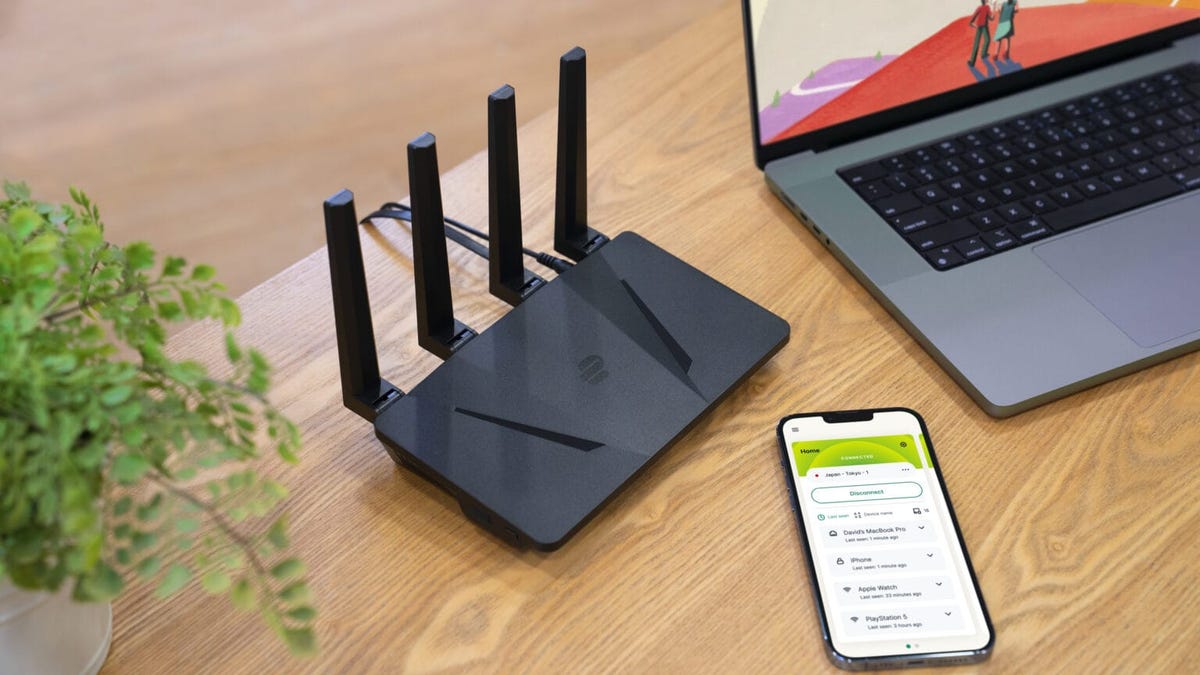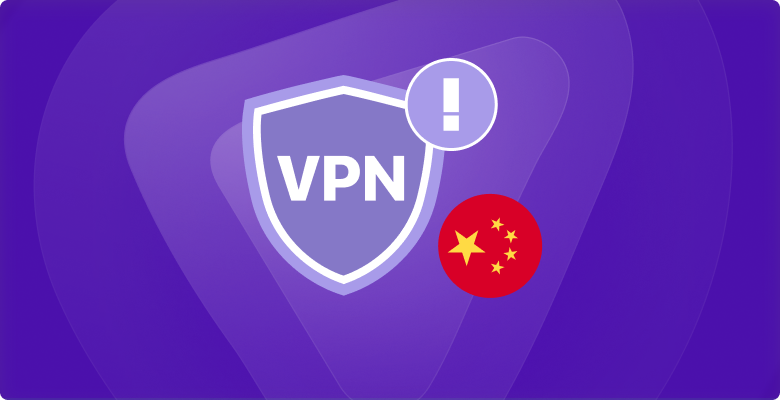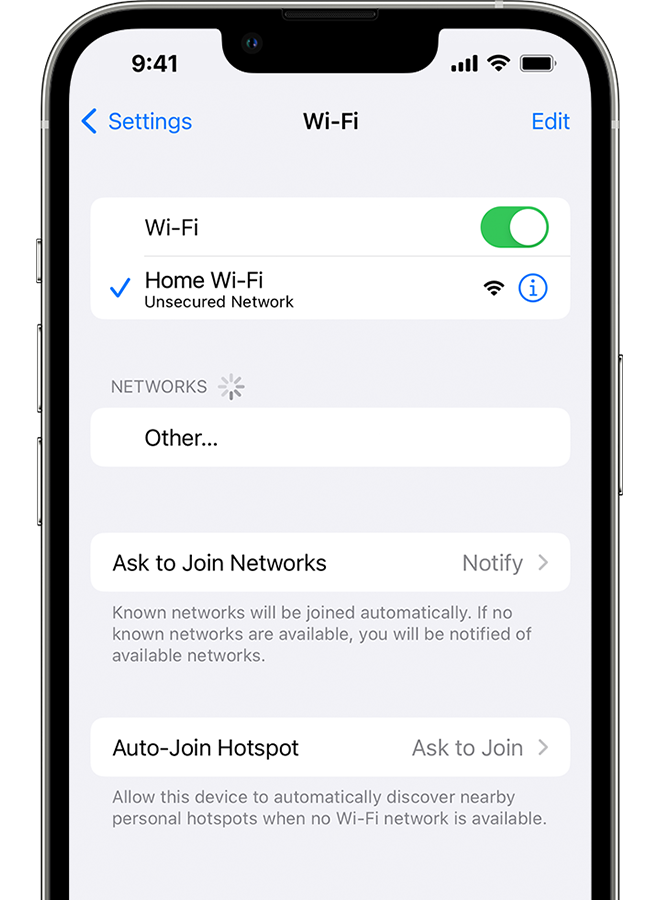Should I connect to Wi-Fi or VPN first?
Summary
Contents
- 1 Summary
- 2 Using Wi-Fi and VPN
- 3 Benefits of Using VPN on Wi-Fi
- 4 When to Connect to VPN
- 5 Potential Downsides of VPN
- 6 When Not to Use VPN
- 7 Conclusion
- 8 Questions and Answers
- 8.1 1. Should I use Wi-Fi or data with VPN?
- 8.2 2. Can you use VPN and Wi-Fi together?
- 8.3 3. When should you connect your system with VPN?
- 8.4 4. Should you use a VPN when on the internet?
- 8.5 5. Does VPN override Wi-Fi?
- 8.6 6. Why does my Wi-Fi stop working when I use VPN?
- 8.7 7. Is it OK to leave VPN on all the time?
- 8.8 8. What should you be careful of when using a VPN?
- 8.9 9. When shouldn’t I use a VPN?
- 8.10 10. Does VPN hide from Wi-Fi provider?
- 8.11 11. Why does my Wi-Fi disconnect when I connect to VPN?
- 8.12 12. How do I stop VPN from blocking my Wi-Fi?
Using Wi-Fi and VPN
When it comes to using Wi-Fi and VPN together, there are a few things you should know. VPNs can be used on both Wi-Fi and cellular data connections, but it is recommended to connect to a Wi-Fi network when using a VPN. This ensures a more stable and secure connection. Additionally, if you want to buy a VPN without using data, connecting to a Wi-Fi network is the way to go.
Benefits of Using VPN on Wi-Fi
Using a VPN on public Wi-Fi networks is highly recommended to protect your personal information from hackers. Public Wi-Fi networks are often unencrypted, making it easy for others to intercept your data. By using a VPN, your internet traffic is encrypted, providing an extra layer of security.
When to Connect to VPN
It’s important to keep your VPN connected when using public Wi-Fi networks. This ensures that your data is protected from potential threats. Whether you’re browsing the internet, accessing sensitive information, or simply using social media, having a VPN active ensures that your online activities remain private and secure.
Potential Downsides of VPN
While VPNs offer numerous benefits, there are a few potential downsides to be aware of. Some streaming services and websites may block VPN connections, limiting your access to certain content. Additionally, VPNs can sometimes slow down your internet speeds and use extra data. It’s also important to note that using a VPN might be illegal in certain countries or violate the terms of service of certain websites or apps.
When Not to Use VPN
There are instances when using a VPN may not be necessary or advisable. If your internet speed is already slow, using a VPN might further reduce your connection speed. Additionally, using a VPN on a mobile device can increase your mobile data usage. It’s also essential to be aware of the legality of VPN usage in your country, as some jurisdictions may consider it an offense.
Conclusion
In conclusion, using a VPN on Wi-Fi networks provides an added layer of security to protect your personal information. It is recommended to connect to Wi-Fi when using a VPN and to keep the VPN active when using public networks. However, it’s important to be aware of potential downsides and assess the necessity of using a VPN in different situations.
Questions and Answers
1. Should I use Wi-Fi or data with VPN?
VPNs can be used on both Wi-Fi and cellular data connections. However, if you want to buy a VPN without using data, connecting to a Wi-Fi network is recommended.
2. Can you use VPN and Wi-Fi together?
Yes, you can use a VPN on both Wi-Fi and cellular data connections. The choice between using Wi-Fi or data with a VPN depends on your preference and the availability of a stable Wi-Fi network.
3. When should you connect your system with VPN?
It is recommended to connect your system to a VPN when using public Wi-Fi networks. Public Wi-Fi networks are often unencrypted, making them vulnerable to hackers. Using a VPN adds an extra layer of security to protect your data.
4. Should you use a VPN when on the internet?
Using a VPN on the internet can help protect your online privacy and provide a secure connection. VPNs encrypt your internet traffic and allow you to bypass restrictions on blocked overseas websites. They are particularly useful when connected to public Wi-Fi networks.
5. Does VPN override Wi-Fi?
No, VPNs do not override Wi-Fi networks. VPNs create an encrypted “tunnel” for your internet traffic, regardless of whether you’re connected to Wi-Fi or using cellular data. However, using a VPN may impact your internet speed slightly.
6. Why does my Wi-Fi stop working when I use VPN?
If your Wi-Fi stops working when you use a VPN, it could be due to issues with the VPN client, your router, or your network connection. Updating your VPN or router software, adjusting VPN settings, or disabling power-saving features on your device can potentially resolve the issue.
7. Is it OK to leave VPN on all the time?
Yes, it is generally recommended to keep your VPN on at all times. By encrypting your traffic, VPNs protect your personal data from interception by third parties. However, it’s important to consider potential downsides, such as slower internet speeds and potential limitations imposed by certain websites or apps.
8. What should you be careful of when using a VPN?
When using a VPN, be cautious of potential disadvantages, such as a false sense of security, limitations imposed by certain streaming services or websites, potential slowdown of internet speeds, increased data usage, and the fact that VPNs may be illegal in some countries. Additionally, free VPN providers may log your data or include malware.
9. When shouldn’t I use a VPN?
Using a VPN may not be necessary or advisable in certain situations. This includes when your internet speed is already slow, as a VPN might further reduce your connection speed. Additionally, using a VPN can increase your mobile data usage, and VPN usage may be considered an offense in some countries.
10. Does VPN hide from Wi-Fi provider?
VPNs encrypt your internet traffic, making it difficult for your Wi-Fi provider to see your browsing history. While they may be able to determine that you’re using a VPN, they won’t be able to see the specific websites or content you’re accessing.
11. Why does my Wi-Fi disconnect when I connect to VPN?
If your Wi-Fi disconnects when you connect to a VPN, it could be due to issues with the VPN client, your router, or your network connection. Updating your VPN or router software, adjusting VPN settings, or disabling power-saving features on your device might help resolve the issue.
12. How do I stop VPN from blocking my Wi-Fi?
If you’re experiencing issues with your VPN blocking your Wi-Fi, you can try switching servers or using a different VPN provider. Some organizations or networks may have specifically blocked certain popular VPNs, so exploring other options might resolve the issue.

Should I use Wi-Fi or data with VPN
VPNs can use cellular data, or they can be on Wi-Fi, which we recommend. How can I buy a VPN without using data You can buy a VPN without using data by connecting to a Wi-Fi network rather than a personal hotspot.
Can you use VPN and Wi-Fi together
You can use a VPN on WiFi or when using cellular data (such as 4G). It makes no difference. A VPN service creates an encrypted “tunnel” across the internet from your device to a server owned by the service provider.
When should you connect your system with VPN
Keep your VPN on when you use public Wi-Fi
Public Wi-Fi isn't encrypted, so hackers can easily intercept the connection and steal your personal information. Encryption protects and secures everything you do online by scrambling your traffic into gibberish, which is all a hacker would see if they ever got hold of it.
Should you use a VPN when on the internet
How important is your online privacy One of the best ways to protect it is to use a VPN (virtual private network). A VPN gives your devices a private, secure internet connection and allows you to get around blocked overseas websites. They're also good to use when you're on a public Wi-Fi network.

Does VPN override Wi-Fi
The VPN is a connection out there on the internet, it has nothing to do with WiFi – so no. (It does slow your connection down, but that's not WiFi – your WiFi is still running at the same speed. Your router just isn't getting data as fast as it would without a VPN.)
Why does my Wi-Fi stop working when I use VPN
Since the VPN routes your traffic through its servers, primarily through different locations, the DNS cache may begin to contain conflicting information that may affect how you connect to the Internet. This could explain why VPN makes the Internet not work on your computer.
Is it OK to leave VPN on all the time
The short answer is: Yes, you should keep your VPN on at all times. By encrypting the traffic that you send and receive, VPNs can prevent your personal data from being intercepted by third parties. This data includes your web browsing history, physical location, IP address, and more.
What should you be careful of when using a VPN
10 disadvantages of a VPNFalse sense of security.Some streaming services block VPNs.Some websites block VPNs.VPNs can slow down your internet speeds.VPNs use extra data.VPNs are illegal in some countries.Free VPN providers might log your data.Free VPNs may include malware.

When I shouldn’t use VPN
Why shouldn't I use a VPNA VPN might reduce your connection speed even if your internet service provider isn't throttling your speed;Using a VPN on mobile will increase your mobile data usage;Using a VPN is considered an offense in some countries, and you can get fined or even be incarcerated for it.
Does VPN hide from Wi-Fi provider
VPNs encrypt all internet traffic, effectively hiding your browsing history from your ISP. However, that doesn't mean the ISP is blind to your activities. They may be able to tell that you're connected to a VPN and for how long, based on the fact that the encrypted traffic is headed to an IP address of a VPN server.
Why does my Wi-Fi disconnect when I connect to VPN
This could be due to issues with the VPN client, your router, or your network connection. You can fix this by updating your VPN or router software, changing your VPN settings, or disabling power-saving features on your device.
How do I stop VPN from blocking my Wi-Fi
You can often bypass a VPN block by switching servers or going to a different VPN provider. The organization blocking your access may have focused on only the more popular VPNs when choosing what to block, so you may be able to gain access using a less popular service.

What to do after VPN is connected
Once you're done with the VPN setup, you can now start using it. Simply select a server in your chosen location and establish a connection. Then, you'll be assigned a new IP address from that country and protected with strong encryption.
Why would you turn off VPN
Despite the inherent security risk, there are legitimate reasons to do so, such as: Troubleshooting a faulty or slow internet connection. Accessing local services such as online banks that do not allow signing in from a foreign country. Accessing corporate networks that do not allow VPN usage.
Should VPN be on or off on my iPhone
You should use a VPN on your iPhone to stay secure online and access public Wi-Fi safely, above other things. According to Forbes research, 40% of respondents had their information compromised while using public Wi-Fi. Despite appearing harder to hack, iPhones are as prone to malicious attacks as any other device.
Why you shouldn’t use VPN all the time
Why shouldn't I use a VPN A VPN might reduce your connection speed even if your internet service provider isn't throttling your speed; Using a VPN on mobile will increase your mobile data usage; Using a VPN is considered an offense in some countries, and you can get fined or even be incarcerated for it.
Is there a downside to always using a VPN
One reason why you may not want to use a VPN is because it could slow down your internet connection speed significantly. There are several factors that affect your internet speeds when using a VPN, including the fact that a VPN encrypts your data and routes it through different servers, which slows down the process.
Should you use VPN with home Wi-Fi
Yes, you need a VPN to protect your online activity, hide your IP addresses, and keep your data safe. A VPN should be the cornerstone of your online privacy and security at home, work, or public places.
Is it OK to keep VPN on all the time
VPN can be kept on all the time
To sum it up, keeping your VPN on all the time is not only perfectly safe but actually recommended. It can keep your online identity anonymous, protect you from attacks associated with unsecured public Wi-Fi networks and help you bypass various artificial restrictions.
What does a VPN not hide
While a VPN masks your IP address and encrypts your internet traffic, it does not hide the type of device you are using. Websites can still gather device-specific information (including operating system, screen resolution and browser type) through methods like browser fingerprinting.

How do sites know I’m using a VPN
Websites and other online services you visit can see the IP address of the VPN server you're connected to. If they want to, they can check that IP address against lists of known VPN and proxy servers to see if you're using a VPN.
How do I stop VPN from blocking my wi fi
You can often bypass a VPN block by switching servers or going to a different VPN provider. The organization blocking your access may have focused on only the more popular VPNs when choosing what to block, so you may be able to gain access using a less popular service.
How do I stop VPN from blocking my WIFI
How to bypass VPN blocks: 8 working methodsChoosing a secure and reliable VPN.Switching to another server or VPN.Using obfuscated servers.Changing the tunneling protocol, encryption, or port.Getting a dedicated/static IP address.Switching to mobile data.Changing the DNS settings.Setting up a manual VPN connection.
How do I know if my VPN is blocking my Wi-Fi
Many VPN providers will show a green light or similar icon when a VPN connection is active, and red when there is a problem with the connection. Some VPNs deliberately block internet traffic if they can't connect or there are issues with your internet connection.
Does VPN bypass Wi-Fi block
When you know how to bypass Wi-Fi restrictions, it's fairly easy. There are different techniques to get past blocked sites, but a VPN usually comes on top of that list. Besides getting past your school's firewall, a VPN will always keep your connection encrypted and hidden from snoops.